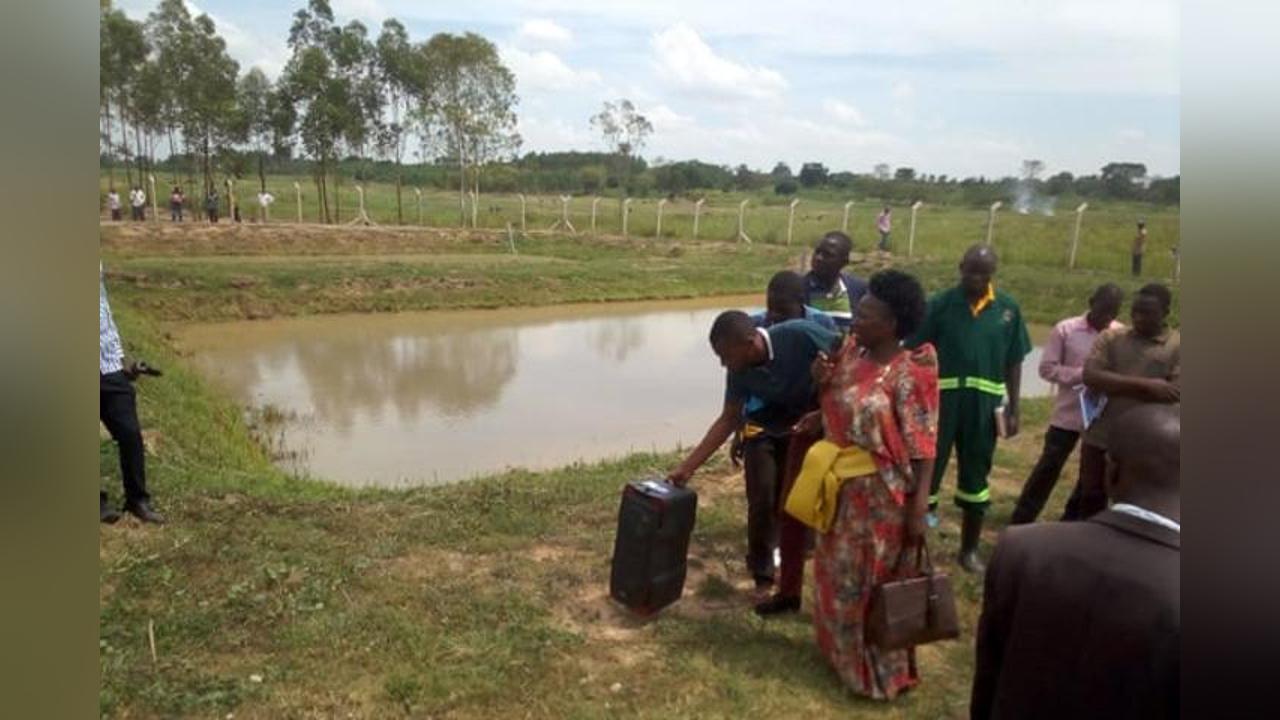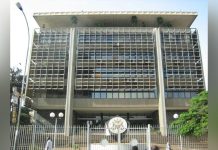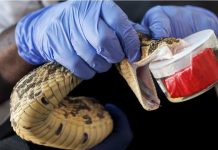Africa-Press – Uganda. For Noah Natude, a resident of Lyama, Kakutu Sub-county in Kibuku, fish farming is a venture he had never envisaged undertaking.
For many years, Mr Natude grew rice on his two-acre piece of land. However, he said he profits obtained from the sale of rice were meagre, leaving him struggling to earn a living and meet his family needs, including paying his children’s school fees.
But before the 2021 General Election, Mr Natude attended President Museveni’s campaign rally, from which he picked an idea that has since changed his life.
He said during the campaign, Mr Museveni urged the communities to embrace fish farming, arguing that it is a highly profitable business.
“After the endless wealth creation awareness campaigns undertaken by the President and other stakeholders, I decided to abandon rice farming on my two-acre piece of land. I dug up fish ponds, starting with catfish,” Mr Natude said.
In 2022, he and other family members under the 15-member Natude Farmers Association dug up two fish ponds measuring 150ft by 50ft and stocked 11,000 fingerings. The digging up of the two ponds cost Shs3.5 million.
Fish sales from the first harvest fetched them Shs4 million while the second fetched Shs6 million.
Mr Natude narrated his experience last week during a field study at Kujji farm, which belongs to State Minister for Bunyoro Affairs Jannipher Namuyangu where she had invited farmers from the sub-counties of Nankodo and Nadere for field training.
He said the profits obtained from the sale of fish have changed his household income by enabling him to meet basic needs and educate his children at the University. He also currently is constructing residential houses for his two wives.
“Fish farming has also empowered my neighbours to work as casual labourers [workers]. I have more than 100 workers where it has boosted their daily income,” he said.
Another fish farmer, Mr David Lume, a resident of Nantalo Village, Nantalo Parish, Nandere Sub-county, said he stocked 1,500 fingerings for Shs1.5 million but after harvesting, he earned Shs2 million in three months.
“I am now able to meet basic needs such as school fees, and other essential services [health]. Fish farming is a good viable enterprise,” he said.
Mr Stephen Balabasa, another fish farmer, and a resident of Nandere Sub-county, said: “The biggest challenge is fish theft. This is so common and it has greatly threatened potential farmers who would like to engage into this project. The feeds are also extremely very expensive,” he said.
Nevertheless, he noted benefits of rice growing are smaller compared to the input. “Engaging in rice growing is so tedious and the output is too small. This is the reason decided to jump out from rice growing to fish farming which is quite profitable,” he said
The NDP3 poverty reduction projection for the Bukedi Sub-region is 25.8 percent, implying that the area is the second poorest in the country, next to Karamoja.
Bukedi comprises seven districts; Busia, Tororo, Butaleja, Budaka, Butebo Pallisa and Kibuku.
Minister Namuyangu said the prime objective of the farm field tour was to equip farmers with basic skills that would help them in wealth creation.
“We are trying to enforce the directive of the President on wealth creation, especially in viable enterprises that can pull out people from the high poverty cycle,” she said.
“The President is so saddened by the high levels of poverty yet people could use the available small pieces of land to mint cash out of these viable enterprises,” she added.
The President has directed all leaders at different levels to set up model farms in their courtyards from which locals can learn.
“The President discouraged the growing of seasonal crops such as maize, ground nuts, cotton, and sugar cane but instead should identify enterprises that could fetch a lot of money such as piggery, poultry, fish farming, and zero grazing,” she said.
More than 300 farmers were drawn from the two sub-counties [Nandere and Nankodo and toured gardens of mangoes, oranges, pineapple, fish ponds, and zero grazing. “This can be possible even on a small piece of land so long as farmers can adopt principles of good selection of viable enterprises. This business of land fragmentation should be stopped,” Ms Namuyangu explained.
Mr Reagan Wekubisya, the assistant fisheries officer-in-charge of Kadama Town Council and Kibuku, said the biggest challenge is the high cost of fish feeds. He said each kilogramme of fish feeds costs about Shs5,000.
He also noted that the fingerings are not easily accessible because the majority of the practicing fish farmers are not getting enough support from the government.
However, the district fisheries officer, Mr Joseph Wandira, said the department is on standby to support farmers who may wish to engage in fish farming.
Background
Over the last two decades, the fisheries sector has played an important social and economic role in Uganda as the second largest foreign exchange earner, contributing 2.6 percent of Gross Domestic Product (GDP) and 12 percent to agricultural GDP. According to the National Agricultural Advisory Services, Uganda produces up to 15,000 tonnes of fish annually. There are an estimated 20,000 ponds throughout the country, with an average surface area of 500 square metres each.
Source: Monitor
For More News And Analysis About Uganda Follow Africa-Press






